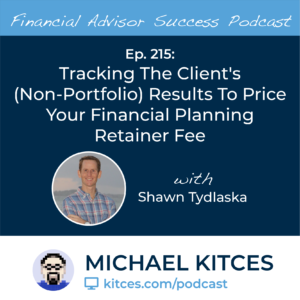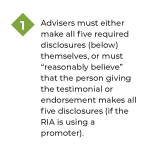One of the most common challenges that financial advisors can face is encouraging clients to implement recommendations when they are resistant to the idea of change… even when the client is aware that those changes are necessary to attain their goals, and even when they want to make those changes! For many clients, resistance is fueled by behavioral biases that hinder their ability to think rationally as they consider a potential change to implement, which in turn can also create friction between the advisor and client in discussing the required changes necessary to accomplish their goals. But by understanding the communication tools that help their clients work through resistance, advisors can enhance their relationships while, at the same time, helping their clients actually take the action steps necessary to follow through on their recommendations!
Behavioral biases can impede rational decision-making by causing a person to discount or ignore relevant and important information. This can happen because of how an individual might subjectively accept and process information (e.g., confirmation bias causes important information to be dismissed because it contradicts a person’s preconceived notion, which a person may not even recognize is incorrect), or because of how moods and feelings about circumstances or relationships can influence thinking (e.g., the endowment effect might cause a client who is emotionally attached to a home that they need to sell to ask for twice the market price of the home).
When helping clients who are resistant to implementing important changes because of behavioral biases, financial advisors may find certain forms of reflection useful to help clients overcome the resistance. Reflection is a conversational tool that is often used by therapists to help patients work through change and accept resistance as a natural part of the challenging process of personal change. These same tools can also be used just as effectively by financial advisors with their clients, because resisting change – even when the change is one that we want to make – is normal, and very common, for nearly everyone.
Because in the end, arguing with a resistant client about why a change is necessary, and presenting data and financial planning projections to prove the point, can actually just make the client more resistant (and may even result in getting the advisor fired!). Whereas the act of reflecting, which can be as simple as reiterating what the client has just said about how they feel, can create positive opportunities for objectively brainstorming new ideas and gaining insight – for both client and advisor – around the thoughts and feelings on successfully moving forward.
Ultimately, the key point is that resistance from clients is normal and very common, but arguably the point that the client needs to make the change is rarely the best way to accomplish the goal. Instead, the best ways to help clients move forward can often be found by offering the client the time and space to reflect upon their own thought processes. And fortunately, advisors have a range of different conversation tools to choose from that help their clients break through and implement their recommendations… in addition to deepening the advisor’s relationships with their clients, too!





 Welcome back to the 215th episode of the Financial Advisor Success Podcast!
Welcome back to the 215th episode of the Financial Advisor Success Podcast!



 Welcome back to the 214th episode of the Financial Advisor Success Podcast!
Welcome back to the 214th episode of the Financial Advisor Success Podcast!
